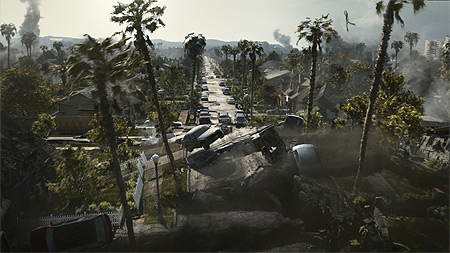
We’ve already crossed bushfires, floods, a global pandemic, society as we know it and whatever the hell a “murder hornet” is off our 2020 bucket list, but it looks like the year is only going to get worse if this alternate reading of the Mayan calendar is correct.
Remember back in 2012 when we were all at least a *little* scared that the world was going to end on December 21? Even if you weren’t a full-blown tin hat-wearing conspiracy theorist back in the day, I’m sure we all went to bed feeling a little uneasy on the eve of December 21, 2012.
The day came and went as normal and the world didn’t end (hooray!). But as luck would have it, some theorists reckon that we actually miscalculated the original date and are now suggesting that the real December 2012 apocalypse is actually scheduled to hit sometime next week. Honestly, would it even surprise us if the world ended next week? Probably not.
The theory circulated on Twitter last week after scientist and Fullbright scholar Paolo Tagaloguin shared the bizarre claim in a now-deleted series of tweets.
“Following the Julian Calendar, we are technically in 2012… The number of days lost in a year due to the shift into Gregorian Calendar is 11 days… For 268 years using the Gregorian Calendar (1752-2020) times 11 days = 2,948 days. 2,948 days / 365 days (per year) = 8 years,” the tweet read, according to The Sun.
Basically, we all collectively decided to use the Gregorian calendar back in 1582, but prior to this we used a number of different calendars including the Mayan and Julian methods. If Tagaloguin’s theory is to be believed, June 21, 2020 is *actually* December 21, 2020.
Now, I’m no mathematician, but if you carry the one, do a little dance, make a little love and get down tonight, the re-calculated date for the Mayan doomsday prediction is *checks notes* this week.
It’s important to note that this is all just a theory, there was precisely zero science behind it back in 2012, and there’s none behind it now.
“For any claims of disaster or dramatic changes in 2012, where is the science? Where is the evidence?,” NASA told The Mirror about the 2012 conspiracy.
“There is none, and for all the fictional assertions, whether they are made in books, movies, documentaries or over the Internet, we cannot change that simple fact.”
They even clarified it again in 2017 on the NASA website, reminding people that the planet in question, “Niburu”, doesn’t actually exist and therefore, can’t collide with the Earth.
“Various people are “predicting” that world will end Sept. 23 when another planet collides with Earth. The planet in question, Niburu, doesn’t exist, so there will be no collision. As you can see from the Q&A below, the story of Niburu has been around for years (as has the “days of darkness” tale) and is periodically recycled into new apocalyptic fables,” NASA said in 2017.
Doomsday conspiracy theories circulate all the time, with a recalculated Mayan calendar story popping up at least once per year. But after all of the wild things we’ve experienced in 2020 so far, it’s not exactly far fetched to think that we’re heading straight for the end of the world.
Should you spend the next week crying your eyes out and spending all your money before we all burn in a fiery doomsday hell? Probably not. But heck, I’m not going to stop you if you want to throw a cheeky “The World Might End” party with your socially-distanced mates.
It’s the end of the world as we know it (but hopefully just because we learn to be less shitty post-COVID and not because of a literal apocalypse.)



